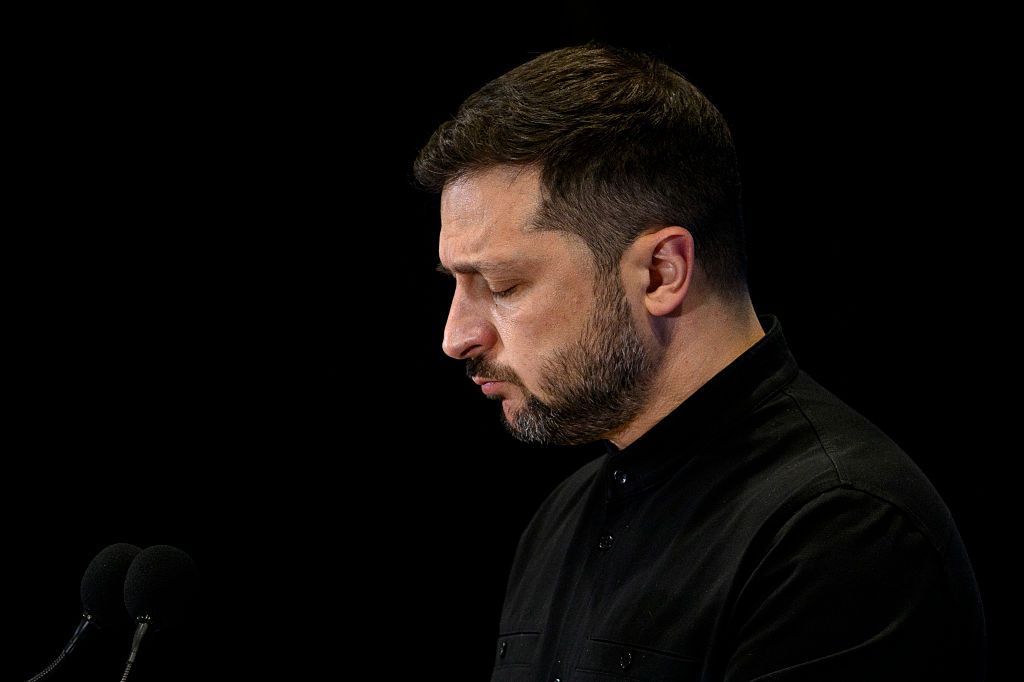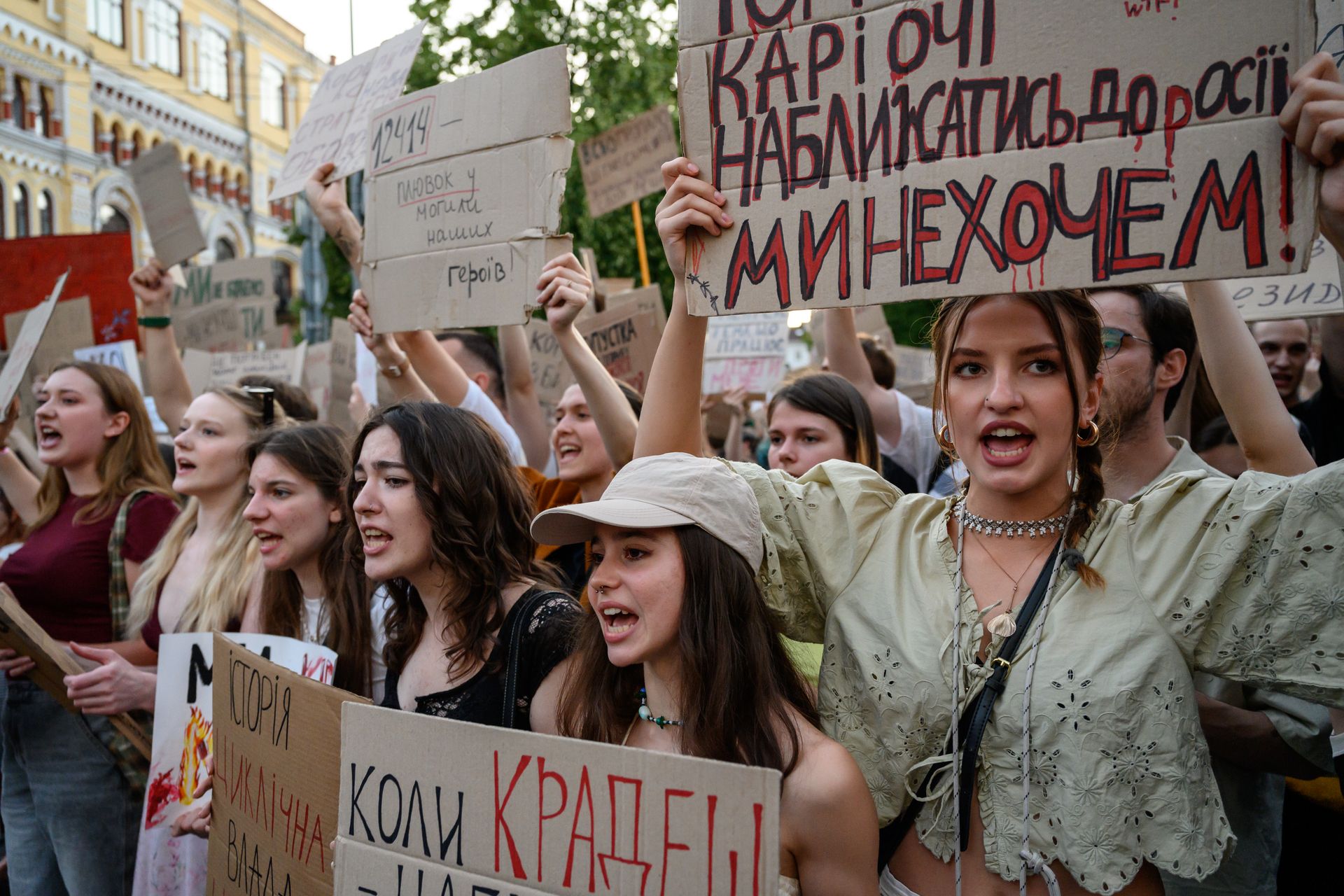Ukrainians take to streets for 4th day as Zelensky backtracks on anti-corruption law

Editor's note: This is a developing story, and it is being updated.
Ukrainians on July 25 participated in mass protests against a controversial new law that strips independence from the country's anti-corruption agencies, marking the fourth day in a row of demonstrations condemning the bill.
President Volodymyr Zelensky earlier addressed criticism of the law, saying on July 24 that there should have been a dialogue between parliament and society before its adoption.
Zelensky signed the bill into law on July 22, shortly after it was passed by parliament, sparking protests in Ukraine and drawing criticism from Western allies.
"Probably, there should have been a dialogue. Communication is always necessary," Zelensky told journalists on July 24, adding that he is focused on the war because right now, this is "the number one issue in Ukraine."
Today, I also held meetings on the preparation of legislative decisions that we plan to implement in the near future.
The law expanded the prosecutor general's authority over cases handled by the Specialized Anti-Corruption Prosecutor's Office (SAPO) and the National Anti-Corruption Bureau of Ukraine (NABU). It also allows the prosecutor general to issue binding instructions to NABU, reassign cases outside the agency, and delegate SAPO's authority to other prosecutors. Critics say the changes dismantle safeguards that protect both bodies from political interference.
Following strong backlash, Zelensky announced that a new bill had been submitted to the Ukrainian parliament just two days later, on July 24.
After Zelensky submitted the bill to the Verkhovna Rada, parliamentary chairman Ruslan Stefanchuk announced that lawmakers would consider it during an emergency session on July 31.
"During the consideration of this bill, I will propose that it be adopted immediately, both as a basis and in full, and that its urgent signing be supported," Stefanchuk said.
Ukraine's Anti-Corruption Action Center (AntAC), a watchdog, supported the president's initiative, saying it would "restore the principles previously dismantled by the Verkhovna Rada."
"It is very important that society speaks. I respect the opinion of society," Zelensky said.
"People have the right to say what they think. People said — everything must be according to the law. For me, it was very important that we listened and responded adequately. People asked for changes. We responded."
Hundreds of demonstrators gathered in Kyiv near the Ivan Franko Theater as the protests entered their fourth day. Participants hung a large banner, emblazoned with the text: "How much is your signature worth, Mr. President?"
The western city of Lviv also saw hundreds of people joining protests. Smaller-scale demonstrations took place in other cities, including Zaporizhzhia and Odesa.
In his evening address on July 25, Zelensky was largely quiet on the new law and the protests, but mentioned holding meetings about upcoming "legislative decisions."
"Today, I also held meetings on the preparation of legislative decisions that we plan to implement in the near future," he said, without going into further detail.
Peaceful protests sprung up throughout Ukraine immediately after parliament fast-tracked the bill to approval on July 22.
Following the adoption of the bill, multiple international leaders held phone calls with Zelensky, reportedly urging him reconsider the decision, which also undermines Ukraine's path to EU membership.
Zelensky said he assured EU partners that he has a solution to address the fallout from the bill's adoption.
"We are part of the same infrastructure as Europe; we want to be part of Europe. No one is willing to take any risks," Zelensky said.
"As for NABU and SAPO, I told them that I would find a solution. I would present my vision based on what is needed on the anti-corruption side and what society wants," Zelensky added.
The president assured that the new draft law was developed around the core principles of anti-corruption agencies independence.
The contentious law was initially passed under the justification of ridding the agencies of Russian influence — although no procedures in the law actually addressed the issue.
Zelensky said that the new bill includes provisions designed to shield all law enforcement and anti-corruption agencies from Russian influence as it requires their employees to undergo polygraph tests once every two years.
Until parliament approves the new bill and the president signs it, the law passed on July 22 remains in effect.














